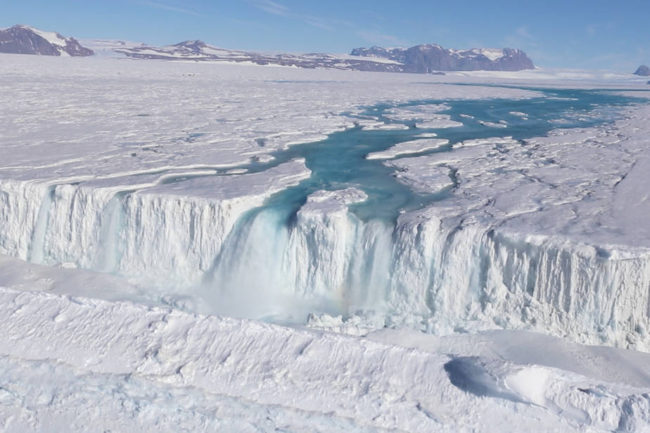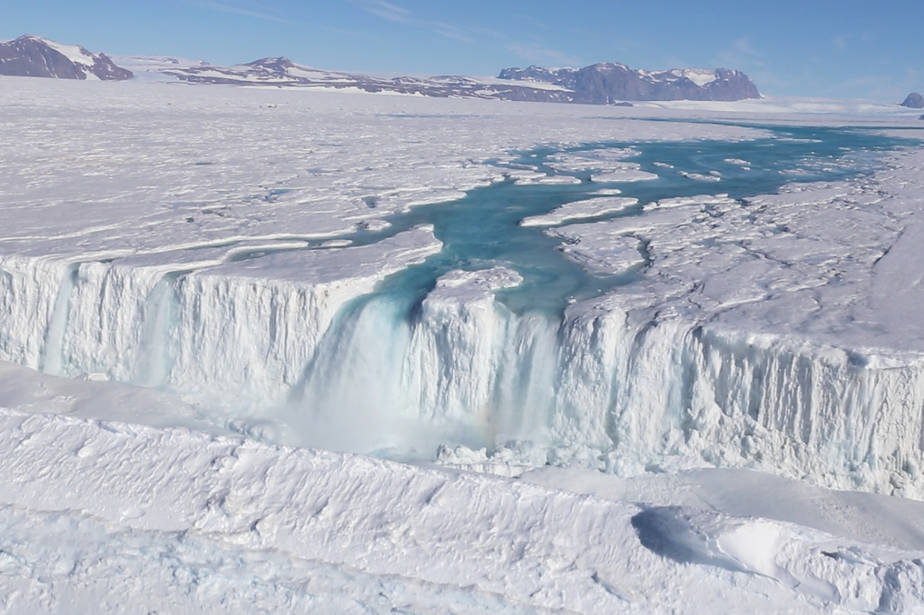
Today we have 3 scientific papers all focused on the demise of Antarctic Ice sheets. The theme is loosely yesterday, today and tomorrow. Let’s dive right in.
Nature: West Antarctic ice sheet and CO2greenhouse effect: a threat of disaster
The abstract reads …
If the global consumption of fossil fuels continues to grow at its present rate, atmospheric CO2 content will double in about 50 years. Climatic models suggest that the resultant greenhouse-warming effect will be greatly magnified in high latitudes. The computed temperature rise at lat 80° S could start rapid deglaciation of West Antarctica, leading to a 5 m rise in sea level.
This is a rather semi-famous paper written 41 years ago by glaciologist John Mercer of the Institute of Polar Studies at Ohio State University. The punch here is that we now know this paper to be correct.
At the time the response to this idea was not well received. Mercer struggled to get funding after the publication of the above. Climate scientist James Hansen coined the term, “the John Mercer effect”, when he also encountered similar rejection.
PNAS: Four decades of Antarctic Ice Sheet mass balance from 1979–2017
This second paper published in PNAS last December is robust observational evidence that Mercer’s 1978 paper was correct.
This is a paper where glaciologists from the University of California, Irvine, NASA’s Jet Propulsion Laboratory, and the Netherlands’ Utrecht University utilised actual observations to gain this insight – Antarctica experienced a sixfold increase in yearly ice mass loss between 1979 and 2017
Additionally, they make the observation that this accelerated melting caused global sea levels to rise more than half an inch during that time.
“That’s just the tip of the iceberg, so to speak,” said lead author Eric Rignot, Donald Bren Professor and chair of Earth system science at UCI. “As the Antarctic ice sheet continues to melt away, we expect multi-meter sea level rise from Antarctica in the coming centuries.”
You can find my previous posting about this paper here.
Nature: West Antarctic ice loss influenced by internal climate variability and anthropogenic forcing
This new study was published just a couple of days ago on 12th August 2019 in Nature.
What is new here is that it answers a rather important question. The previous paper firmly established the observation that the West Antarctic Ice Sheet has been experiencing ice loss. What is also clear is that this is happening because the ocean is melting ice shelves in the Amundsen Sea. This is happening because eastward wind anomalies at the shelf break enhance and enable the import of warm Circumpolar Deep Water onto the Amundsen Sea continental shelf.
So the question that this paper tackles is this – Is this us, are humans responsible?
What did they do?
They combined observations with climate model simulations.
What did this reveal?
It is indeed us.
Increased greenhouse gas forcing caused shelf-break winds to transition from mean easterlies in the 1920s to the near-zero mean zonal winds of the present day.
What comes next?
They also ran the models ahead to see what comes next. That reveals that the future is not a certainty and is still very much down to what we do.
Existing climate model projections show that strong future greenhouse gas forcing creates persistent mean westerly shelf-break winds by 2100, suggesting a further enhancement of warm ocean anomalies. These wind changes are weaker under a scenario in which greenhouse gas concentrations are stabilized.
This brings us right back to the original paper by Mercer in 1978. This is what he was pointing out over 41 years ago. All the observational data since then confirms it. The models also now clearly align as well.
What comes next is very much determined by what we do.
The “Do Nothing” option leads to the inevitable collapse of the Antarctic Ice Sheet and resulting rise of sea level by many meters. If however we stabilise our CO2 emissions, then it can truly make a difference.
Further Reading
Real Climate (14th August) – The Antarctic ice sheet is melting and, yeah, it’s probably our fault.
Here Eric Steig, one of the authors of the new paper discusses the paper in detail and also writes …
many glaciologists believe we have already passed the point of no return for West Antarctica. I personally think the jury is still out on that. But that’s a discussion for another time.
Access to the latest paper
You can find it in Nature here (paywall), or the full text via here.
